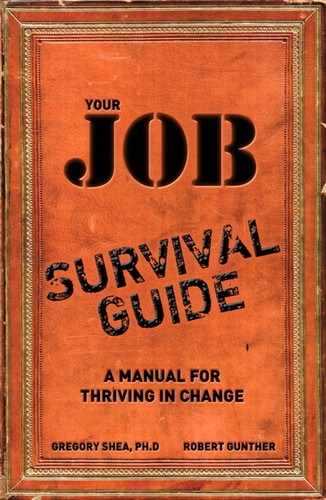Security is mostly a superstition. It does not exist in nature, nor do the children of men as a whole experience it. Avoiding danger is no safer in the long run than outright exposure. Life is either a daring adventure, or nothing. | ||
| --Helen Keller | ||
In 1869, Major John Wesley Powell, a one-armed Civil War veteran and self-made college professor with a passion for exploration, organized a team of nine other men in four boats to tackle one of the last uncharted wildernesses of the United States. They traveled almost 1,000 miles down the Green River and the Colorado River into the heart of the Grand Canyon. In open boats, without life jackets, they made difficult portages around the most dangerous stretches. Sometimes the sheer, towering cliffs prohibited portaging or even scouting. Then, they picked up their paddles, shoved off, and hoped for the best.
This journey proved so harrowing that after two months of battling the river and dwindling rations, three men from the party decided to take their chances overland. At what became known as “Separation Canyon,” the men took their leave, saying, “We surely all will die if we continue on this journey.” What manager or employee in today’s fast-changing organizations hasn’t had this same thought? With outsourcing, mergers, reorganizations, and the double-Venti-latte pace of work, the dangers are ever present. Surely, there must be a safer route than remaining on this turbulent whitewater river.
A reasonable person might have agreed with these men who parted company with Powell. Continuing downstream appeared to be certain death. But the men who abandoned the group were killed on their way out. A few days later, Powell and his remaining five crew members made it safely back to civilization, long after the world had given them up for dead. Getting out of whitewater does not necessarily lead to greater security. As Helen Keller said, avoiding danger sometimes is no safer than outright exposure. Sometimes the best path is through the rapids—but you can improve your chances of success with the right skills and equipment.
The two of us, in recent years, separately followed Powell’s course down the Colorado River, and each of us benefited from advances in river-running equipment and skills. Greg traveled in a dory designed for this water, with a good life jacket and supporting rafts. Rob paddled a kayak that allowed him to roll (most of the time) when the rapids flipped him. Massive motor launches now cruise like tour buses through the biggest water in the Canyon. In the 80 years after Powell made his journey, a mere 100 people followed his path—and some of them ended up in rough graves along the shores. Today, more than 18,000 visitors per year take this journey.[1] The right skills and equipment make all the difference.
In the same way, ordinary people equipped with the right mindset and skills can successfully navigate the uncommon turbulence of modern organizational life. Living and working in this crazy, rushing world, you might feel at times like the explorers at Separation Canyon. You might be presented with precious few, and decidedly unsavory, options. Proceeding downstream seems to risk disaster, but the route overland, if it even exists, may be no better. As we show in this book, you not only can survive, but you can truly enjoy the journey.
This book started a few years back when Rob attended a session on organizational change that Greg taught at the Wharton School. Greg described this current environment as “permanent whitewater,” using a phrase from Peter Vaill.[2] Rob, who has paddled kayaks since he was a teenager and written business books throughout his career, understood what Greg meant by paddling whitewater. It means learning to be comfortable in an environment that scares the hell out of most people. It means developing skills, some counterintuitive ones, such as hanging upside down in your boat while underwater rocks pound on your helmet and your oxygen runs thin. Skills such as the Eskimo roll can convert a nail-biting plunge to oblivion into an exciting adventure.
You need a different way of thinking and acting for this world. First, you need to accept change. Spencer Johnson offered a simple but effective fable about mice and cheese that made this point.[3] But, to accept change is just to start. Today, somebody did not just move the “cheese.” The cheese bobs down a river of permanent whitewater; it races over drops and churns through holes. Pity the poor mouse who chases after it—unless, of course, this voyager sits snugly in a kayak, wearing neoprene, a PFD, and a helmet, ready for anything. Once you accept the relentlessness of change—that the cheese keeps moving—you then need to develop the right skills for this new world.
Today, you might feel swept down a rushing, roiling, and seemingly unending river. You are in permanent whitewater. Like Powell, you can’t slow or change the pace of this river. But you can change how you look at the river as well as how you react to it. You can pick up your paddle and learn to master the mindset and the skills needed for this turbulent environment, this permanent whitewater world. This book will help you do just that. You hold in your hands a survival guide for your real job: change. But survival is not enough. This book will help you thrive.
Gregory Shea, Ph.D.
Robert Gunther
